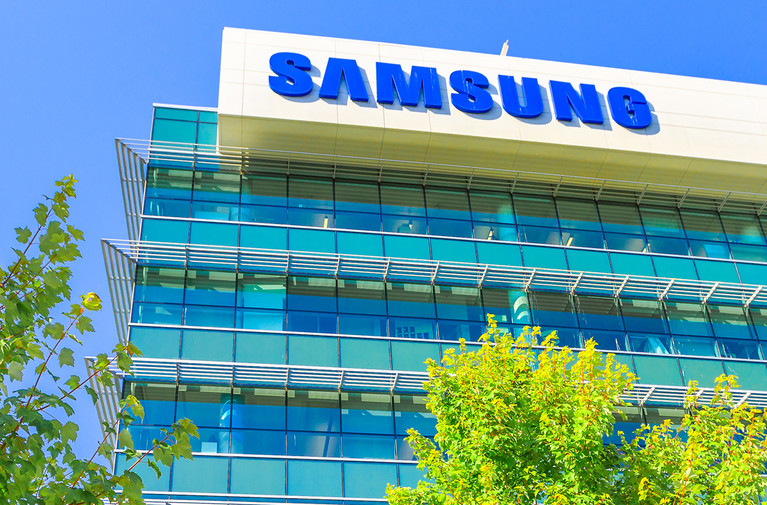In a high-stakes legal battle over intellectual property, Samsung Electronics has accused a former executive of stealing trade secrets to aid a Chinese rival, potentially giving the competitor an unfair advantage in navigating U.S. tariffs on imported goods. The lawsuit, filed in the U.S. District Court for the Eastern District of Texas, highlights escalating tensions in the global tech supply chain amid ongoing trade wars.
Samsung’s Allegations: Theft of Critical Trade Secrets
Samsung Electronics Co. Ltd. filed the non-compete lawsuit on August 28, 2025, against a former high-ranking executive, alleging breach of contract and misappropriation of trade secrets related to semiconductor manufacturing processes. The suit claims the executive, who left Samsung in early 2025, violated a non-compete agreement by joining a Chinese firm and sharing confidential data on advanced chip fabrication techniques, including OLED display technology and “clean room” designs for contamination-free production.
According to court documents, the stolen secrets—estimated to be worth hundreds of millions—could enable the rival to optimize supply chains and reduce costs, providing a “competitive edge” in responding to U.S. tariffs on Chinese imports. Samsung argues this misappropriation not only breaches the executive’s employment contract but also violates the Defend Trade Secrets Act (DTSA) and Texas Uniform Trade Secrets Act (TUTSA), seeking injunctions, damages, and the return of proprietary information.
The case builds on Samsung’s history of IP disputes, including a 2023 indictment of a former executive for stealing chip factory blueprints to replicate operations in China. Prosecutors in that matter alleged the technology could have cost Samsung $233 million in lost value.
Background: Trade Secrets in the Tech Industry and Tariff Pressures
Trade secret theft has long plagued the semiconductor sector, where innovation drives billions in revenue. Samsung, a global leader in memory chips and displays, invests heavily in R&D—over $20 billion annually—to maintain its edge. The U.S.-China trade war, intensified by tariffs under both Trump and Biden administrations, has heightened stakes, with duties on electronics reaching 25% on $300 billion in goods.
Non-compete suits like this one aim to prevent executives from leveraging insider knowledge at rivals. Under the DTSA, enacted in 2016, companies can sue for injunctions and damages if secrets are misappropriated, even internationally. Samsung’s case echoes past victories, such as a 2025 ITC ruling against BOE Technology for stealing OLED secrets, potentially banning iPhone imports using affected panels.
The executive, unnamed in filings to protect ongoing investigations, allegedly photographed confidential data while working remotely, a common vector for theft in hybrid work eras. This could allow the Chinese firm to bypass years of R&D, gaining tariff-evasion strategies like localized production.
Key Elements of the Lawsuit
| Allegation | Details | Potential Impact |
|---|---|---|
| Breach of Non-Compete | Executive joined rival within 2 years of leaving Samsung | Loss of competitive advantage in chip market |
| Trade Secret Theft | Stolen blueprints for clean rooms and OLED processes | $233M+ in economic harm; tariff response edge |
| DTSA Violation | Misappropriation for foreign use | Injunctions and damages sought |
Expert Opinions and Public Reactions
Legal experts view the suit as a proactive strike in the U.S.-China tech rivalry. “Samsung’s allegations underscore how trade secrets are weapons in tariff battles—stolen IP could help rivals reroute supply chains to avoid duties,” said IP attorney Daniel Schwarcz from the University of Minnesota. Seyfarth Shaw’s trade secrets team noted that such cases often result in multimillion-dollar awards, citing a recent $134 million Samsung win against BOE.
Public reactions on social media are mixed but intense. On X, users debated the implications, with one post stating, “Samsung suing over stolen secrets to beat tariffs? Tech espionage just got spicier.” Tech forums like Reddit’s r/technology highlight concerns over innovation theft, with threads garnering thousands of upvotes. Chinese state media dismissed it as “protectionism,” while U.S. analysts praise Samsung’s vigilance.
Impact on U.S. Readers: Economy, Tech, and Trade Wars
For American consumers, this suit could stabilize tech prices by protecting innovations in smartphones and EVs, where Samsung supplies key components—U.S. imports from Korea top $100 billion annually. Economically, unresolved theft erodes U.S. competitiveness, costing $300-600 billion yearly in IP losses, per the IP Commission.
Politically, it fuels 2026 midterm debates on tariffs and IP enforcement, with potential for broader sanctions on Chinese firms. Lifestyle-wise, it affects gadget affordability—tariff hikes could add $50-100 to phone prices. Technologically, stronger protections spur U.S. R&D investments ($20B+ for semiconductors). In sports, similar IP issues arise in esports and gaming hardware.
Conclusion: A Battle for Tech Supremacy
Samsung’s non-compete suit alleges stolen trade secrets that could empower a Chinese rival to outmaneuver U.S. tariffs, escalating the global IP arms race. With injunctions and damages on the line, the Texas court case could set precedents for cross-border enforcement.
Looking ahead, expect more such disputes as trade tensions persist, but victories like Samsung’s may safeguard innovations and keep costs down for U.S. consumers. Stay tuned—this could reshape the semiconductor landscape.
